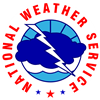|
Take some time to learn about beach and water safety this summer!
En español: |
|
Know Before You Go!
Swim Risk and Beach Hazard Statements:
 |
 |
||
| It is best to Know Before You Go: the swim risk, if there are any Beach Hazard Statements in effect, and the beach status/conditions. | When a high swim risk is expected a Beach Hazard Statement is Issued. | ||
| weather.gov/greatlakes/beachhazard | |||
Stay Dry When Waves Are High!
Waves:
 |
 |
||
| There are certain conditions and locations prone to current, it is best to avoid these areas. | Ever wonder what drives the wave heights on Lake Michigan and why we see a shorter length of time in between waves than if you were at a beach on the ocean? | ||
 |
 |
||
| The wave period is typically much shorter than compared to on the ocean! | What is the wave period? It is the number of seconds in between each wave crashing into you! | ||
| weather.gov/greatlakes/beachhazard | |||
Steer Clear of the Pier!
Dangerous Rip Currents:
 |
 |
||
| There are certain conditions and locations prone to current, it is best to avoid these areas. |
Follow these tips when you are caught in a current: Flip, Float, Follow! |
||
 |
 |
||
| Currents develop by several factors. It is best to be familiar with the different currents and why they develop so that you know what to expect before deciding whether to go to the beach or not. | Rip currents are powerful currents of water moving away from shore. They can sweep even the strongest swimmer away from shore. It is important to know what to do if you are caught in a rip current. | ||
 |
 |
||
| Spotting Rip Currents | Outlet Currents | ||
 |
 |
||
| Channel Currents | Longshore and Structural Currents | ||
| weather.gov/greatlakes/beachhazard | |||
Designate a Water Watcher!
Understand the Signs of Drowning:
 |
 |
||
| At the beach it is always a good idea to designate a Water Watcher and make sure everyone knows the signs of drowning. | At the beach, remaining vigilant and knowing when to speak up can save someone’s life. | ||
| weather.gov/greatlakes/beachhazard | |||
Know the Signs of Hypothermia!
Great Lakes Water Temperatures Can Be COLD:
 |
|||
| Cold water is a huge hazard on the Great Lakes and can kill. | |||
| weather.gov/greatlakes/beachhazard | |||
Sun and Heat Safety
Know the Signs of Heat Exhaustion and Heat Stroke:
 |
|||
| Heat Exhaustion vs Heat Stroke | |||
| weather.gov/greatlakes/beachhazard | |||
 |
Media use of NWS Web News Stories is encouraged! Please acknowledge the NWS as the source of any news information accessed from this site. |
 |